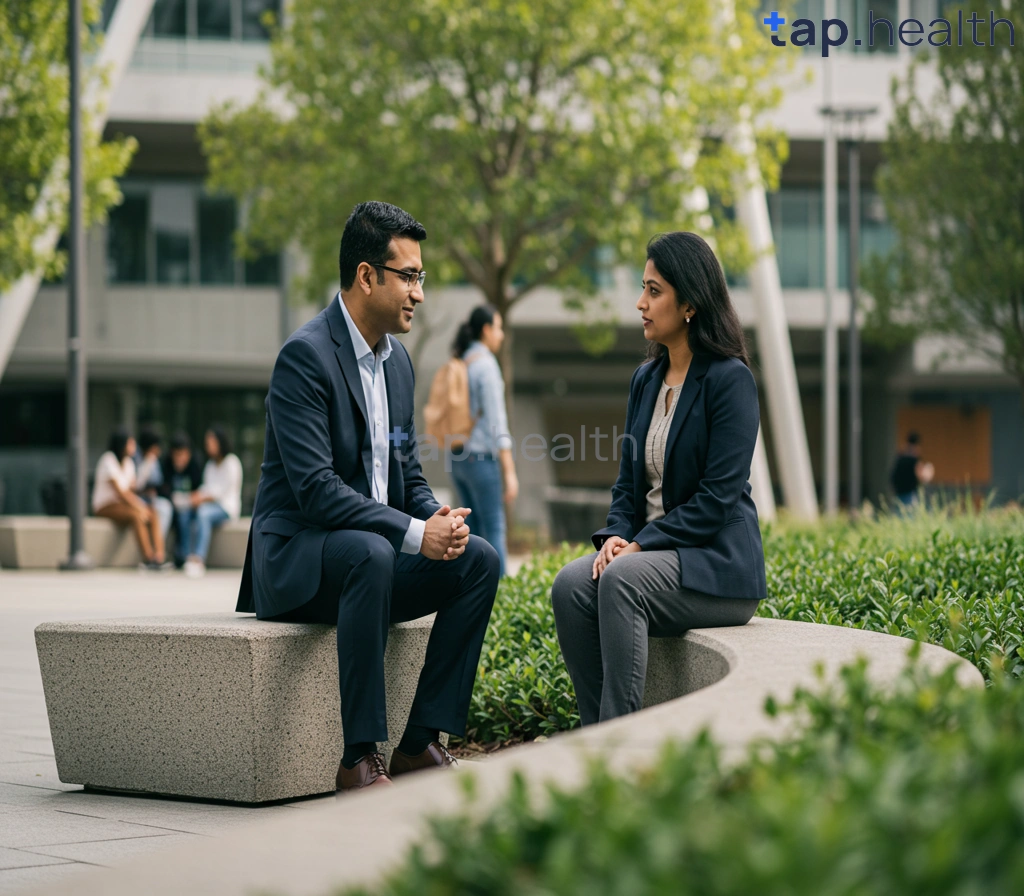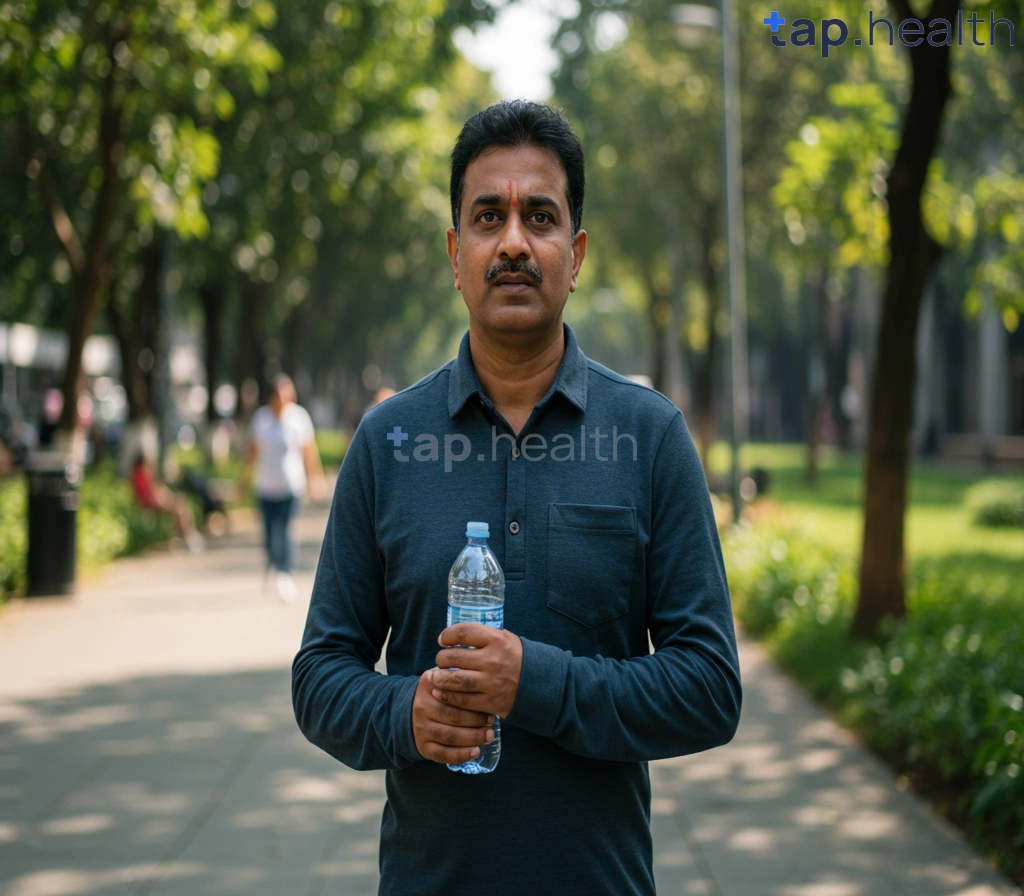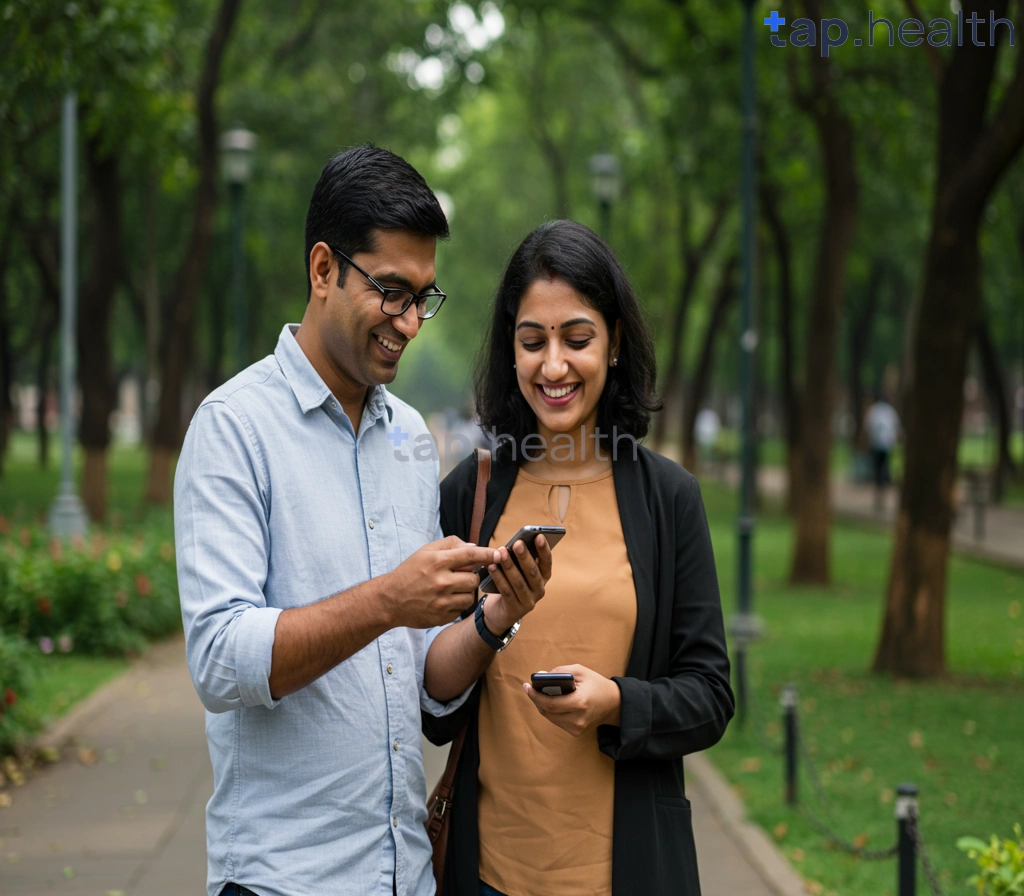Table of Contents
- Holistic Diabetes Management: Integrative Therapies
- Exploring Alternative Approaches to Diabetes Care
- Integrative Therapies for Diabetes: A Comprehensive Guide
- Which Holistic Methods Effectively Manage Diabetes?
- Balancing Blood Sugar: Natural & Integrative Strategies
- Frequently Asked Questions
- References
Living with diabetes can feel like navigating a complex maze, but you don’t have to do it alone. This blog is dedicated to exploring the world of Managing Diabetes: Exploring Integrative Therapies and Holistic Approaches. We’ll delve into effective strategies beyond traditional medicine, examining how complementary therapies can support your overall well-being and help you achieve better blood sugar control. Discover how lifestyle changes, mindfulness techniques, and natural remedies can empower you to take charge of your health. Let’s embark on this journey together to find a path towards a healthier, happier you.
Holistic Diabetes Management: Integrative Therapies
Managing diabetes effectively requires a multifaceted approach, especially in diverse regions like India and other tropical countries. The global burden of diabetes is significant, with a substantial portion – 61% of those with diabetes aged between 20-64 years – falling within the prime working age group. This highlights the urgent need for accessible and culturally relevant management strategies.
Lifestyle Interventions: The Foundation of Holistic Care
For individuals in India and tropical countries, incorporating traditional practices into diabetes management is crucial. Dietary modifications, emphasizing locally available fruits, vegetables, and whole grains, are paramount. This includes incorporating spices known for their anti-inflammatory and blood sugar-regulating properties, commonly used in Ayurvedic and other traditional medicine systems. Regular physical activity, tailored to the climate and individual’s fitness level, is also vital. Think yoga, walks in cooler parts of the day, or other culturally appropriate exercises.
Integrative Therapies: Complementary Approaches
Beyond lifestyle changes, integrative therapies can play a supportive role. Ayurveda, for instance, offers personalized dietary and lifestyle recommendations to balance the body’s energies and improve metabolic function. Other complementary approaches, like mindfulness and stress-reduction techniques (yoga, meditation), can help manage stress, a known contributor to blood sugar fluctuations. It’s crucial to consult with both your doctor and a qualified practitioner of any complementary therapy before starting any new treatment.
Seeking Support in Your Community
The high prevalence of diabetes among the 39% of individuals aged 65+ emphasizes the importance of community-based support. Connecting with local diabetes support groups or seeking guidance from healthcare professionals familiar with the specific needs of your region can significantly enhance your management journey. Remember, holistic diabetes management is a journey, not a destination; consistent effort and personalized strategies are key to long-term success. Speak to your doctor about incorporating these strategies into your overall diabetes management plan. For more specific tips, check out our blog on 10 Proven Tips for Effective Diabetes Management. As you age, managing diabetes presents unique challenges. Learn more about this in our article, Managing Diabetes as You Age: Challenges and Solutions.
Exploring Alternative Approaches to Diabetes Care
Diabetes is a growing global health concern, with a staggering statistic highlighting that 50% of cases worldwide remain undiagnosed. This alarming figure is particularly relevant in Indian and tropical countries, where lifestyle factors and access to healthcare can significantly impact diabetes management. Learn more about the global diabetes burden. Therefore, exploring alternative and complementary therapies alongside conventional medical care is crucial.
Holistic Approaches for Indian and Tropical Climates
Many integrative approaches focus on lifestyle modifications central to managing diabetes. In regions like India, traditional systems of medicine, such as Ayurveda and Siddha, offer herbal remedies and dietary recommendations tailored to individual constitutions and climatic conditions. These often emphasize balanced diets rich in fruits, vegetables, and whole grains, limiting refined carbohydrates and processed foods—critical elements for effective diabetes management in any climate. The emphasis on stress reduction techniques like yoga and meditation is also valuable, as stress exacerbates blood sugar levels. For more information on supporting your diet, consider exploring Safe and Effective Dietary Supplements for Diabetes Care.
Practical Tips for Better Diabetes Management
Prioritizing regular exercise, even short walks, is vital. Regular monitoring of blood sugar levels is crucial for early detection of fluctuations. Consulting with a qualified healthcare professional before starting any new treatment, including alternative therapies, is paramount. Remember, integrative approaches complement, not replace, conventional medical care. Finding a balance that suits your individual needs and cultural context is key to successful diabetes management. Technological advancements are also playing a significant role; see How Can New Technological Advances Improve Diabetes Lifestyle? for more details.
Taking Charge of Your Health
In Indian and tropical countries, community-based support groups and educational programs are increasingly valuable resources. Actively engaging with these initiatives, coupled with a holistic approach to diabetes care, empowers individuals to take control of their health and well-being. Seek out a qualified practitioner specializing in integrative medicine to develop a personalized plan.
Integrative Therapies for Diabetes: A Comprehensive Guide
Diabetes, a growing global health concern, affects an estimated 536.6 million people aged 20-79 years, a number projected to rise to 783.7 million by 2045. This alarming statistic highlights the urgent need for effective management strategies, especially in regions like India and other tropical countries where diabetes prevalence is significantly high. Traditional Western medicine is crucial, but integrating holistic approaches can significantly improve outcomes and quality of life.
Harnessing the Power of Ayurveda and Traditional Medicine
In India and many tropical nations, Ayurveda and other traditional healing systems offer valuable tools for diabetes management. Ayurvedic practices often focus on balancing the body’s doshas (energies) through diet, herbal remedies, and lifestyle modifications. Panchakarma, a detoxification process, may also be beneficial. Furthermore, incorporating easily accessible, locally-sourced herbs and spices known for their blood sugar-regulating properties can be a crucial part of an integrative approach. Remember to always consult with qualified practitioners before starting any new treatment.
Lifestyle Modifications: The Cornerstone of Integrative Care
Alongside traditional therapies, lifestyle changes are paramount. A balanced diet rich in fresh fruits, vegetables, and whole grains—emphasizing locally available, seasonal produce—is vital. Regular physical activity tailored to individual needs and preferences is equally important. Yoga, pranayama (breathing exercises), and meditation, widely practiced across India and other tropical regions, can also contribute to stress reduction and improved blood sugar control. Managing stress is crucial as it directly impacts blood sugar levels. For more practical tips, check out our guide: 10 Proven Tips to Effectively Manage Diabetes | Simple Guide.
Seeking Expert Guidance
The path to effective diabetes management involves a holistic approach combining modern medicine with the wisdom of traditional practices and lifestyle modifications. Seeking guidance from qualified healthcare professionals experienced in both Western and integrative therapies is essential to create a personalized plan that works best for your individual needs and circumstances. Don’t hesitate to explore these options for improved diabetes management and a healthier life. Strengthening your immune system is also vital; learn more in our article: Boosting Immunity While Managing Diabetes.
Which Holistic Methods Effectively Manage Diabetes?
Diabetes management in India and tropical countries often presents unique challenges, especially considering that over 60% of people with diabetes in India also have hypertension. This significant comorbidity highlights the need for comprehensive approaches beyond conventional medicine. Holistic methods, when integrated with medical advice, can play a vital role in improving blood sugar control and overall well-being.
Dietary Interventions: The Cornerstone of Management
A balanced diet rich in fiber, fresh fruits, vegetables, and whole grains forms the bedrock of effective diabetes management. Traditional Indian diets, when adapted to prioritize these components, can be incredibly beneficial. Reducing refined carbohydrates, processed foods, and saturated fats is crucial. Consulting a registered dietitian familiar with regional culinary practices is highly recommended for personalized dietary guidance. Remember to avoid some of the 5 Common Mistakes People Make in Managing Diabetes to maximize your efforts.
Lifestyle Modifications: Beyond Diet
Regular physical activity is essential. Yoga, pranayama (breathing exercises), and Tai Chi are popular and accessible options in many tropical regions, offering both physical and mental health benefits. These practices can help manage stress, a known contributor to blood sugar fluctuations. Aim for at least 150 minutes of moderate-intensity aerobic activity per week. Managing your cholesterol is also important, and you can learn more about that in our article on How to Manage Cholesterol Levels with Diabetes?
Mindfulness and Stress Reduction: Crucial for Balance
Chronic stress exacerbates diabetes. Practicing mindfulness techniques like meditation can significantly impact blood sugar control by reducing cortisol levels. Ancient Indian practices like meditation and yoga are readily available and deeply ingrained in the culture, offering easily accessible tools for stress management.
Herbal Remedies: Caution and Consultation
While some herbal remedies show promise in managing certain aspects of diabetes, it’s crucial to consult with a healthcare professional before incorporating them into your treatment plan. Many herbal remedies interact with conventional medications, potentially leading to adverse effects. Never self-medicate.
Remember: Holistic approaches should complement, not replace, medical advice. Regular check-ups with your doctor, along with adherence to prescribed medications, remain paramount for effective diabetes management. By integrating these holistic methods into your routine, you can achieve better blood sugar control and improve your overall quality of life.
Balancing Blood Sugar: Natural & Integrative Strategies
Managing diabetes effectively in hot and humid climates like those prevalent in India and other tropical countries requires a holistic approach. While maintaining blood pressure below the recommended target of 130/80 mmHg (although some guidelines suggest 140/90 mmHg is acceptable), is crucial, focusing solely on medication isn’t enough. Integrative therapies offer a powerful complement to conventional treatments.
Dietary Adjustments for Tropical Climates
The abundance of fresh fruits, vegetables, and spices in many tropical regions offers a natural advantage. Prioritizing a diet rich in fiber from sources like legumes, leafy greens, and whole grains helps regulate blood sugar levels. Staying hydrated is especially crucial in hot weather, so increasing fluid intake beyond the usual recommendations is vital. Remember to choose water over sugary drinks. Consider incorporating spices like turmeric and cinnamon, known for their potential blood sugar-regulating properties. For more natural remedies to support healthy blood sugar, check out our article on Top 8 Natural Remedies to Improve Blood Sugar Levels.
Lifestyle Modifications & Traditional Practices
Regular physical activity is essential, but tailor your exercise routine to the climate. Avoid strenuous activity during the hottest parts of the day. Yoga and pranayama (breathing exercises), common in Indian traditions, can significantly help manage stress, a known factor in blood sugar control. Sufficient sleep and stress-reduction techniques are also key components of a holistic approach. Consult with an Ayurvedic practitioner or other qualified healthcare professional familiar with traditional practices to explore options suitable for your specific needs.
Seeking Expert Guidance
Remember, these strategies should complement, not replace, your doctor’s advice and prescribed medication. Always consult with your physician or a registered dietitian before making significant changes to your diet or lifestyle, especially if you have pre-existing conditions. A collaborative approach, combining modern medicine with integrative therapies tailored to your specific regional context, offers the most effective path to managing diabetes and maintaining optimal health. Learning how to maintain healthy blood sugar levels is a journey, and you can find more information on Blood Sugar Levels.
Frequently Asked Questions on Manage Diabetes Naturally
Q1. What is the core approach to managing diabetes, especially in tropical regions like India?
A holistic approach combining conventional medicine with integrative therapies is most effective. This includes lifestyle changes (diet and exercise), integrative therapies (Ayurveda, yoga, meditation), and community support, all while working closely with healthcare professionals.
Q2. What lifestyle changes are recommended for better diabetes management?
Culturally appropriate dietary modifications are key, focusing on locally sourced whole grains, fruits, vegetables, and spices known to help regulate blood sugar. Regular physical activity is also crucial.
Q3. How can integrative therapies help in managing diabetes?
Integrative therapies such as Ayurveda, yoga, and meditation can complement lifestyle changes by reducing stress and improving overall well-being, thus supporting better diabetes management.
Q4. What is the role of conventional medicine in this holistic approach?
Conventional medical treatments remain essential. Holistic methods should augment, not replace, these treatments. This includes regular monitoring and medication adherence.
Q5. What’s the importance of community and professional support?
Community support and consultation with healthcare professionals experienced in both Western and integrative medicine are vital for personalized care and long-term success. A collaborative approach is key.
References
- A Practical Guide to Integrated Type 2 Diabetes Care: https://www.hse.ie/eng/services/list/2/primarycare/east-coast-diabetes-service/management-of-type-2-diabetes/diabetes-and-pregnancy/icgp-guide-to-integrated-type-2.pdf
- Diabetes Mellitus: Understanding the Disease, Its Diagnosis, and Management Strategies in Present Scenario: https://www.ajol.info/index.php/ajbr/article/view/283152/266731




